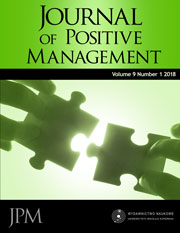STRATEGIC APPROACH TO PURCHASING PROCESS IN THE EUROPEAN MANUFACTURER OF ELECTRONIC PRODUCTS
DOI:
https://doi.org/10.12775/JPM.2018.138Keywords
procurement, purchasing, ethics, semiconductor industry price policyAbstract
Purpose: The aim of the article it to reveal strategic behaviours of the European manufacturer of electronic products undertaken in the face of world-wide price practices driven by semiconductor business which bring down the competitiveness of European manufacturers of electronic products.
Methodology: Case study conducted in the European manufacturer of electronic products based on in-depth interview with purchasing manager having the experience in electronic industry.
Findings: Excellence in strategic supply management is crucial to compete in electronic industry under the strong pressure of Far East competitors. On the one hand tough and coordinated work of procurement, R&D and quality departments is necessary. It is critical to understand how semiconductor business drives the price policy and set up against the adequate procurement policy. On the other hand being close to the market with the ability of fast customer’s requirements fulfilment with flexible and highly automated production gives the real chance to compete with Far East competitors.
Implications: To encourage European manufacturers of electronic products to revise procurement policy and to investigate if semiconductor companies’ price practices impair their competitiveness.
References
Burt, D.N., Pinkerton, R.L. (1996), A purchasing manager’s guide to strategic proactive procurement, American Management Association, New York.
CAPS (2012), “Snapshot of the CPO Role Shows Significant Change”, Inside Supply Management, Vol. 23 No. 8.
Carter, J.R., Yan, T. (2007), “The procurement function’s role in strategic outsourcing from a process perspective”, International Journal of Procurement Management, Vol. 1, No. 1–2, pp. 210–226.
Christopher, M. (2000), Logistyka i zarządzanie łańcuchem dostaw, Polskie Centrum Doradztwa Logistycznego, Warszawa.
Christopher, M. (2016), Logistics and supply chain management, Pearson Education Limited, Edinburgh Gate.
Cousins, P.D., Lawson, B., Squire, B. (2008), “Performance measurement in strategic buyer-supplier relationships”, International Journal of Operations & Production Management, Vol. 28 No. 3, pp. 238-258. DOI: 10.1108/01443570810856170
Donaldson, T. (1995), „Kiedyś wszedł między wrony, … no właśnie, co powinieneś robić? Biznes w ujęciu międzynarodowym a relatywizm kulturowy”, in: Minus, P.B. (Ed.), Etyka w biznesie, Wydawnictwo Naukowe PWN, Warszawa, pp. 75-76.
Hong, P., Kwon, H. (2012), “Emerging issues of procurement management: A review and prospect”, International Journal of Procurement Management, Vol. 5 No. 4, pp. 452-469. DOI: 10.1504/IJPM.2012.047199
Hugos, M.H. (2011), Essentials of Supply Chain Management, John Wiley & Sons, Inc., Hoboken, New Jersey.
Kerkhoff, G. (2005), The bermuda triangle of business procurement, WILEY-VCH Verlag GmbH&Co. KGaA, Weinheim.
Kern, F. (1995), Zaopatrzenie jak profesjonalnie kupować, Centrum Kreowania Liderów, Międzyborów.
Klimczak, B. (1997), „Jak uzasadnić potrzebę etyki w działalności gospodarczej?”, in: Dietl, J., Gasparski, W. (Eds.), Etyka biznesu, Wydawnictwo Naukowe PWN, Warszawa, pp. 349-361.
Liu, Y., Huang, Y., Luo, Y., Zhao, Y. (2012), “How does the justice matter in achieving buyer-supplier relationship performance?”, Journal of Operations Management, Vol. 30 No. 5, pp. 355-367. DOI: 10.1016/j.jom.2012.03.003
Luzzini, D., Ronchi, S. (2016), “Cinderella purchasing transformation: linking purchasing status to purchasing practices and business performance”, Production Planning & Control, Vol. 27 No. 10, pp. 787-796. DOI: 10.1080/09537287.2015.1137986
Lysons, K. (2004), Zakupy zaopatrzeniowe, Polskie Wydawnictwo Ekonomiczne, Warszawa.
Mączyńska, E. (2007), „Upadłości przedsiębiorstw a etyka”, in: Klimczak, B., Lewicka-Strzałecka, A. (Ed.), Etyka i ekonomia, Wydawnictwo Polskiego Towarzystwa Ekonomicznego, Warszawa, pp. 181-182.
Porter, M.E. (2001), Porter o konkurencji, Polskie Wydawnictwo Ekonomiczne, Warszawa.
Porter, M.E., Kramer, M.R. (2011) “The big idea: creating shared value”, Harvard Business Review, January/February, Vol. 89 No. 1, pp. 63–77.
Rottenburger, J.R., Carter, C.R., Kaufmann, L. (2018), “It's alright, it's just a bluff: Why do corporate codes reduce lying, but not bluffing?”, Journal of Purchasing and Supply Management. DOI: 10.1016/j.pursup.2018.02.004.
Ryals, L., Rogers, B. (2006) “Holding up the mirror: the impact of strategic procurement practices on account management”, Business Horizons, Vol. 49 No. 1, pp. 41–50.
Sarjusz-Wolski, Z. (1998), Strategia zarządzania zaopatrzeniem, Agencja Wydawnicza Placet, Warszawa.
Schary, P.B., Skjott-Larsen, T. (2002), Zarządzanie globalnym łańcuchem podaży, Wydawnictwo Naukowe PWN, Warszawa.
Simchi-Levi, D., Kaminsky, P., Simchi-Levi, E. (2009), Designing and managing the supply chain: concepts, stategies and case studies, McGraw-Hill Education, New York.
Slywotzky, A.J., Morrison, D.J., Andelman, B. (2000), Strefa zysku, Polskie Wydawnictwo Ekonomiczne, Warszawa.
Spina, G., Caniato, F., Luzzini, D., Ronchi, S. (2013), “Past, present and future trends of purchasing and supply management: An extensive literature review”, Industrial Marketing Management, Vol. 42 No. 8, pp. 1202-1212. DOI: 10.1016/j.indmarman.2013.04.001
Urbańczyk, T. (2006), „Tworzenie sieci dostaw”, in: Ciesielski, M. (Ed.), Logistyka w biznesie, Polskie Wydawnictwo Ekonomiczne, Warszawa.
Voss, C., Tsikriktsis, N., Frohlich, M. (2002), „Case research in operations management”, International Journal of Operations & Production Management, Vol. 22 No. 2, pp. 195-219.
Downloads
Published
How to Cite
Issue
Section
License
Copyright
Articles submitted to the journal should not have been published before in their current or substantially similar form, or be under consideration for publication with another journal. Authors submitting articles for publication warrant that the work is not an infringement of any existing copyright and will indemnify the publisher against any breach of such warranty. For ease of dissemination and to ensure proper policing of use, papers and contributions become the legal copyright of the publisher unless otherwise agreed.
Plagiarism and ghostwriting
In response to the issue of plagiarism and ghostwriting the editors of the Journal of Positive Management has introduced the following rules to counteract these phenomena:
1. Contributors should be aware of their responsibility for a content of manuscripts.
2. Collective authors are obliged to reveal the contribution and an affiliation of each author (i.e. who is an author of specified part of a paper).
3. Any act of dishonesty will be denounced, the editors will inform appropriate institutions about the situation and give evidence of all cases of misconduct and unethical behaviour.
4. The editors may ask contributors for financial disclosure (i.e. contribution of specified institutions).
Stats
Number of views and downloads: 747
Number of citations: 0



